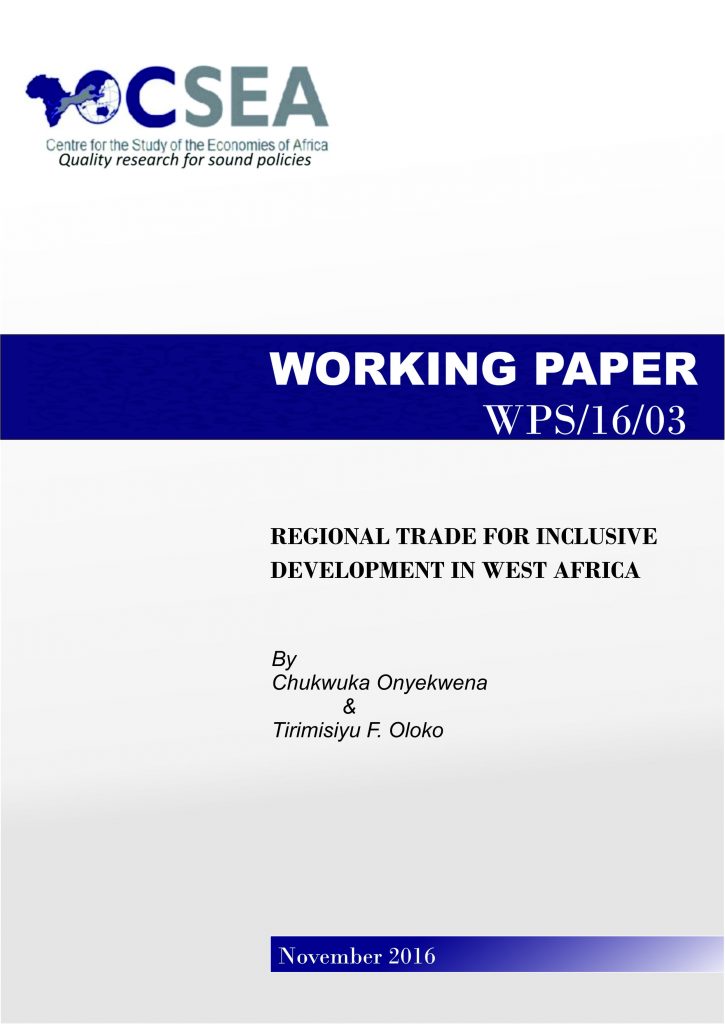Publications

February 3, 2017
Regional Trade For Inclusive Development In West Africa
This
study examines the potential of regional trade in facilitating the achievement
of inclusive development in the West African region. It employs descriptive
analysis to examine the nature, composition and dimension of ECOWAS trade within
the group and with the rest of the world, vis–vis three other Regional
Economic Communities (RECs) in sub-Saharan Africa (SSA). From the preliminary
study, it can be observed that the growth rate of West African economies is
increasing, but the rising economic growth does not translate to improvement in
inclusive development, as there was no significant reduction in poverty levels in
the region. Further evidence reveals that extra-regional trade of the region is
increasing at a very high rate, and also at a disproportionate rate with
intra-regional trade, compared with SADC. This indicates the existence of
opportunity to boost regional trade for inclusive development through
conversion of part of the extra-regional trade into regional trade.
